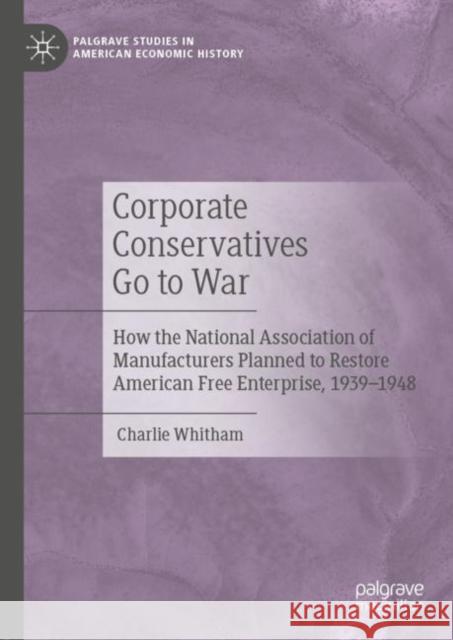Corporate Conservatives Go to War: How the National Association of Manufacturers Planned to Restore American Free Enterprise, 1939-1948 » książka
topmenu
Corporate Conservatives Go to War: How the National Association of Manufacturers Planned to Restore American Free Enterprise, 1939-1948
ISBN-13: 9783030439071 / Angielski / Twarda / 2020 / 400 str.
Corporate Conservatives Go to War: How the National Association of Manufacturers Planned to Restore American Free Enterprise, 1939-1948
ISBN-13: 9783030439071 / Angielski / Twarda / 2020 / 400 str.
cena 384,63 zł
(netto: 366,31 VAT: 5%)
Najniższa cena z 30 dni: 382,84 zł
(netto: 366,31 VAT: 5%)
Najniższa cena z 30 dni: 382,84 zł
Termin realizacji zamówienia:
ok. 20 dni roboczych.
ok. 20 dni roboczych.
Darmowa dostawa!
Kategorie:
Kategorie BISAC:
Wydawca:
Palgrave MacMillan
Seria wydawnicza:
Język:
Angielski
ISBN-13:
9783030439071
Rok wydania:
2020
Wydanie:
2020
Numer serii:
000796214
Ilość stron:
400
Waga:
0.59 kg
Wymiary:
21.59 x 19.56 x 2.54
Oprawa:
Twarda
Wolumenów:
01











